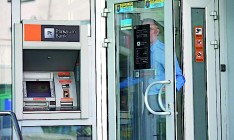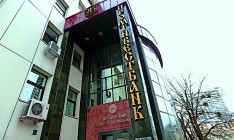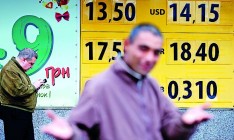Business
ProspectsKernel’s shareholders have a good chance of receiving their first dividends

For the first time since the beginning of the year Andriy Verevskiy’s agricultural holding Kernel has shown a profit. In July—September 2014, the company earned US $22.3 mn in net profits compared to the net loss of US $34.3 mn in the same period in 2013, according to the company’s financial report published yesterday. The company’s revenues for this period increased 40.3% to US $579.16 mn and EBITDA by 26.8 times to US $80.5.
The net debt as of September 30 was estimated at US $653.9 mn compared to US $711.8 mn at the end of September 2013. The ratio of net debt to EBITDA for the financial year decreased from 3.3 to 2.2 as a result of a strong operating cash flow during the last year.
Played on devaluation
The company increased its production and sales volumes, which explains the growth of financial indices, says analyst at the Eavex Capital Ivan Dzvinka. For example, the sale of grain increased by 38% compared to July—August 2013 (approximately to 1.22 mn t), the sale of bulk oil increased 2.1 times to 202,600 t and the processing of sunflower seeds increased by 2.5 times to 506,400 t.
The change in the situation on the commodities market also made a significant contribution to sales volumes. «The high surplus of last year’s crops, an abundant harvest of sunflower seeds this year (approximately 11 mn t — Capital) and the shutdown of several processors in the Donbas reduced competition for sunflower seeds,» says Head of the Analytical Department at Concorde Capital Oleksandr Parashchiy. Due to this, the profitability of production of sunoil in July—September increased by 25 times to US $202/t compared to last year.
Kernel managed to exploit devaluation of the national currency to its own benefit. «Approximately 90% of revenues (export — Capital) are pegged to the U.S. dollar, while the share of spending pegged to the currency is close to 80%. Therefore, the effect of devaluation is more positive than negative,» says Dzvinka. Because of devaluation of the hryvnia by 9% over the quarter, Kernel’s loss from foreign exchange over the reporting period amounted to US $17.2 mn. However, this amount was compensated by export sales denominated in U.S. dollars. For example, the company exports almost all liquid sunoil, which accounts for 90% in its production.
Sweet surprise
The market was surprised with US $20 bn in revenues and almost US $3 mn EBITDA brought by Kernel’s sugar business. «As it turned out, the company had sufficient reserves of sugar produced in 2012. We see such a one-time gain as a bonus to the already strong financial results of the first quarter,» says Senior Analyst at Art Capital Andriy Patiota.
The report says Kernel owns 100% of the two sugar factories: Agricultural Company Kuibyshevo (previously owned 65.6%) and Palmira (previously owned 93%). Dzvinka believes that the increase in the share will allow the company quickly find a buyer for sugar assets in the future.
As a reminder, in 2012 Verevskiy announced his intention of pulling out of the sugar business. In 2013, the company sold the Chortkiv sugar mill to Pfeifer & Langen (Germany) and the Orzhytskiy sugar factory to Astarta.
First reward
Industry analysts have made a positive forecast for the company’s stock. Now Kernel’s securities are traded at the attractive multiplier of 2015 EV/EBITDA in 4.0, says Dzvinka. Patiota notes that the «Buy» recommendation for the company’s securities remains unchanged, though the target price has been revised.
Improvement of the financial performance gave Verevskiy a reason to think about payout of the first dividends. The meeting of the board of directors will take place on December 10 to decide on payout of dividends for the 2014 fiscal year (July 2014—June 2015). The recommended amount of payout is US $0.25 per share. «There is a 99% probability that the dividends will be approved. The amount allocated for them is insignificant, so it will not have a negative impact on any operations or debt servicing,» says Patiota. He adds there is a small probability of non-approval of the decision on dividends only in case of the absence of a quorum of participants of the meeting.






 of the agreement of syndication with Financial Times Limited are strictly prohibited. Use of materials which refers to France-Presse, Reuters, Interfax-Ukraine, Ukrainian News, UNIAN agencies is strictly prohibited. Materials marked
of the agreement of syndication with Financial Times Limited are strictly prohibited. Use of materials which refers to France-Presse, Reuters, Interfax-Ukraine, Ukrainian News, UNIAN agencies is strictly prohibited. Materials marked  are published as advertisements.
are published as advertisements.